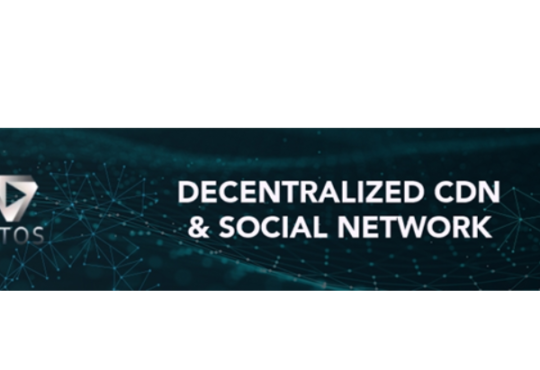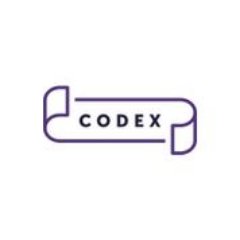Swiss-based Melonport is building Melon - blockchain software for asset management. Founded last year, the project is designed to reduce the barriers to entry and improve inefficiencies experienced in the asset management space. Last week, Melonport provided an update on some recent events and developments in the company. Following this, co-founder and CEO, Mona El Isa agreed to answer some questions for Chain-Finance.
C-F: What led you to found Melonport?
MEI: Having previously worked at Goldman Sachs as an Equities Trader and Jabre Captial as a Portfolio Manager, my last stint in finance was a rollercoaster experience of trying to launch my own hedge fund. It didn’t last very long, but it was an incredibly eye opening experience. Despite having single-handedly raised $30 million to manage, it was nowhere close to being enough to run due to the phenomenal costs associated with hedge fund management. For the first time in my life, I was faced with the operational and administrative work that goes into running a fund and I was shocked by how incredibly inefficient, expensive, wasteful and archaic it was in today’s age of technology . I had no time to focus on the job I wanted to do which was - investing!. So, I closed the fund with the intention of taking a year of to explore what was happening in the world of fintech, with a particular focus on blockchain platforms and the hugely disruptive and innovative technology that was being built around them. This led me to meeting my partner at Melonport, Reto Trinkler. Reto was already working on the idea behind Melonport - a blockchain based asset management platform. You can imagine how excited I was when I heard that! From then onwards we’ve been working together on developing the idea and making it a reality. We founded Melonport AG in Switzerland , the private company behind the Melon protocol together in 2016 and released the Green Paper describing the Melon Protocol last year. Now in 2017, everything is coming together and we’re picking up a huge amount of momentum.
C-F: What makes the Melonport Protocol ideal for digital asset management?
MEI: It allows the user to pre-determine the parameters of a fund by selecting from an open-ended variety of “modules” and adding them to a compulsory “core”. For example, if you want your digital asset universe to be only interact with “ERC20 tokens” on the Ethereum blockchain, you want your price feed from “Reuters Thompson” and you want it only to ever be able to interact with a decentralised exchange such as “Ether Delta” you can pre-select those module options, along with many others, and add them to the Melon protocol core. The Melon Protocol Core is the base layer of the fund that connects together any external Modules a fund manager might require or desire. This makes up your fund structure. It is completely transparent, so any potential investor in to this fund, knows up front what they are getting into and what the rules of this fund are. This in itself can save a lot of money audits that would otherwise have to be carried out. The blockchain enforces these parameters and makes sure that the manager (or managers) can never do anything beyond what the smart-contracts allow.
C-F: Why did you decide that blockchain technology and smart contracts were the way forward for Melon Protocol?
MEI: The beauty of smart contracts is that you “automate” long, tedious, repetitive and wasteful processes. They are enforced by blockchain technology, the rules specified in the Ethereum protocol specification for example. This starts to get very interesting when we think about Risk management and regulatory processes, or simply not “fudging” performance numbers. Not only can you have specified behaviour being completely locked to a ruleset, buy any actions within the system are entirely transparent on the blockchain itself.
I recently wrote a blog post which addresses these issues in much greater detail.
C-F: What made Melonport choose to use Ethereum over other blockchain options?
MEI: Ethereum pioneered the idea of smart-contracts, and Solidity is the most comprehensive and well supported contract oriented coding language available today. We have great faith in the Ethereum developers to scale and improve it over time, and have been impressed by the progress made thus far. Whilst we will initially deploy on Ethereum though, we do plan to have a governance structure in place which will allow deployment of Melon on other blockchains too, be they other new, public/consortium based platforms, or something entirely different. We see a future where many blockchains will be able to seamlessly interact with each other, and will of course make sure the Melon Protocol is able to leverage that for its users benefit.
C-F: What have been the biggest challenges Melonport has faced so far?
MEI: Being self-funded for a year. Reto and I have worked full time on this project for a year now. We have been offered money several times over the last year and have always turned it down. We really want to show people we believe in our project and in ourselves. We also want to make sure we’re in a position to properly demonstrate how powerful the Melon Protocol is. We aren’t vapourware, and we’re keen to show the world our technical prowess.
C-F: Over the course of December, Melonport presented at a number of events. What have been the highlights of these events?
MEI: That’s a tough question! I think the highlight was presenting in our home town of Zurich. It felt good to have such a warm reception and Q&A, but in particular having our Co-Founder Reto Trinkler there made it extra special for everyone. Reto has been so busy getting Melonport’s PoC2 ready (which we will publicly present before the end of Feb), that he hasn’t been able to attend a lot of the events. Getting the tech right is incredibly important to us.
C-F: Is Melonport appearing at such events something that will be continuing in the coming year?
MEI: Yes, definitely. Although, the form might change somewhat. We eventually hope to launch our own Blockchain for Asset management conference so we can educate around all the fields targeting different audiences. In particular, the different audiences for us would be 1) “developer community” who will be adding modules for which they will be rewarded by the protocol in digital MLN tokens (according to usage) and; 2) “digital fund managers” who would learn how to use the software for their own use-cases.
C-F: Could you give any details on the tokensale and how it is progressing?
MEI: The presale for Melon vouchers, which will be required by users to interact with the Melon Protocol, is set for Feb 15th. Documentation relating to the presale will be public as of Monday. Until now, Melonport has been completely self-funded and no tokens have been pre-sold. We are incredibly excited about moving forward with this, and thoroughly look forward to growing Melonport and creating new value within the fintech community.








